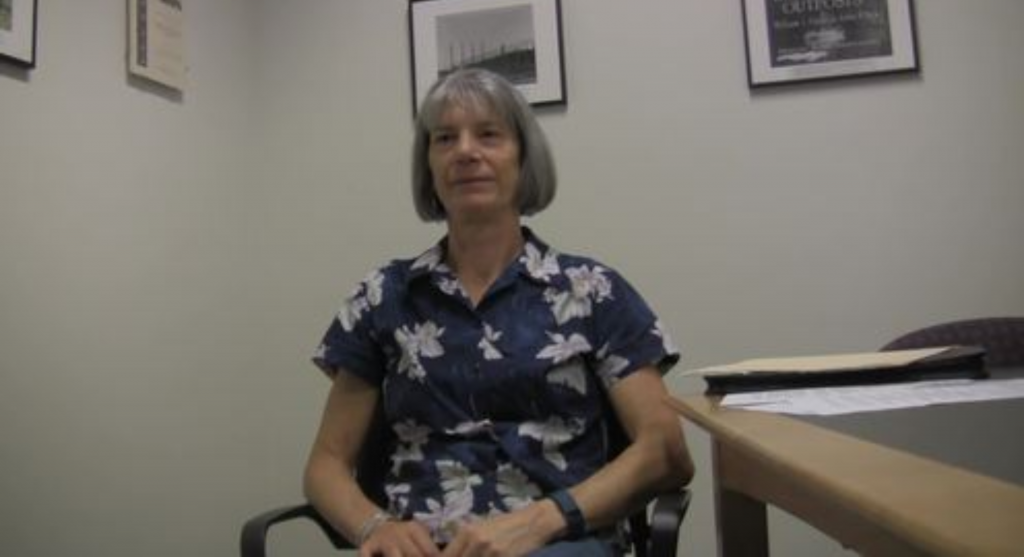 Oregon State University’s Queer Archives collection was established in 2014 with a goal to preserve LGBTQ+ history in and around Corvallis. In 2016, Karuna Neustadt participated in an oral history interview, adding to the Queer Archives and allowing us to hear her story years later.
Oregon State University’s Queer Archives collection was established in 2014 with a goal to preserve LGBTQ+ history in and around Corvallis. In 2016, Karuna Neustadt participated in an oral history interview, adding to the Queer Archives and allowing us to hear her story years later.
Neustadt did not always aspire to activism. In the 1980s, as a recent college graduate who had just moved to Corvallis, she was committed to simply being “open and honest” about her identity. She recalls that she and her then-partner just wanted to live like everyone else.
In 1988, Governor Neil Goldschmidt passed an executive order for a non-discrimination policy regarding sexual orientation in the executive branch of the Oregon state government. Shortly after, anti-gay groups such as the Oregon Citizens Alliance (OCA) worked to get these laws rescinded through Oregon Ballot Measure 8.
Although traumatized and upset, Neustadt and other members of the Corvallis gay & lesbian community were galvanized. This marks the beginning of Neustadt’s activist work and the inception of the Corvallis gay rights group, After 8.
Committed to educating the community on issues of gay rights, After 8 aimed “to ensure that all people are protected from any discrimination based on sexual orientation.” The group led campaigns, ran a phone line, and gave speeches around the community, including to OSU students.
Active & Fully Visible
After 8’s mission statement included being “active and fully visible in the community.” However, this visibility did not always end positively. When After 8 adopted a section of Highway 20, the organization’s sign was constantly vandalized and in need of replacement. Their phone line received death threats and other hateful messages. Neustadt files these events under “the dark side” of being visible.
The OCA continued to spread anti-gay rhetoric, shifting their focus from statewide to local jurisdictions in 1992, beginning with Corvallis. The alliance filed Ballot Measure 02-06, a ban on anti-discrimination that targeted gay and lesbian people.
After 8 responded, running a successful campaign in opposition to 02-06, and running the OCA out of town.
Throughout the ‘90s, After 8 continued to increase gay, lesbian, and bi visibility in the community. In 1998, the organization supported a Benton County ordinance that protected trans people from discrimination as well, which was not common for the time.
End of Change, Beginning of Hope
In her oral history, Neustadt reflected on this evolution of rights, remembering both the traumatic encounters and the positive moments. She notes that the legalization of gay marriage is something she didn’t think she would witness in her lifetime.
The After 8 organization dissolved in 2003. According to Neustadt, this was partly due to activism burnout, and partly because she and the other organizers felt that they had done their part and the surrounding community was changing for the better.
Neustadt closes by acknowledging that “there is still work to do,” as far as queer rights go. But while it is necessary to look ahead at what still needs to be accomplished, it is also important to share gratitude for those who have paved the way in the past. LGBTQ+ rights in Corvallis are a result of the commitment and hard work of devoted community members like Neustadt.
This Queer History Month, we remember and celebrate the accomplishments of Karuna Neustadt, an LGBTQ+ advocate in Corvallis who played an integral role in creating a local community committed to inclusion and equality.
Do you have a story for The Advocate? Email editor@corvallisadvocate.com


